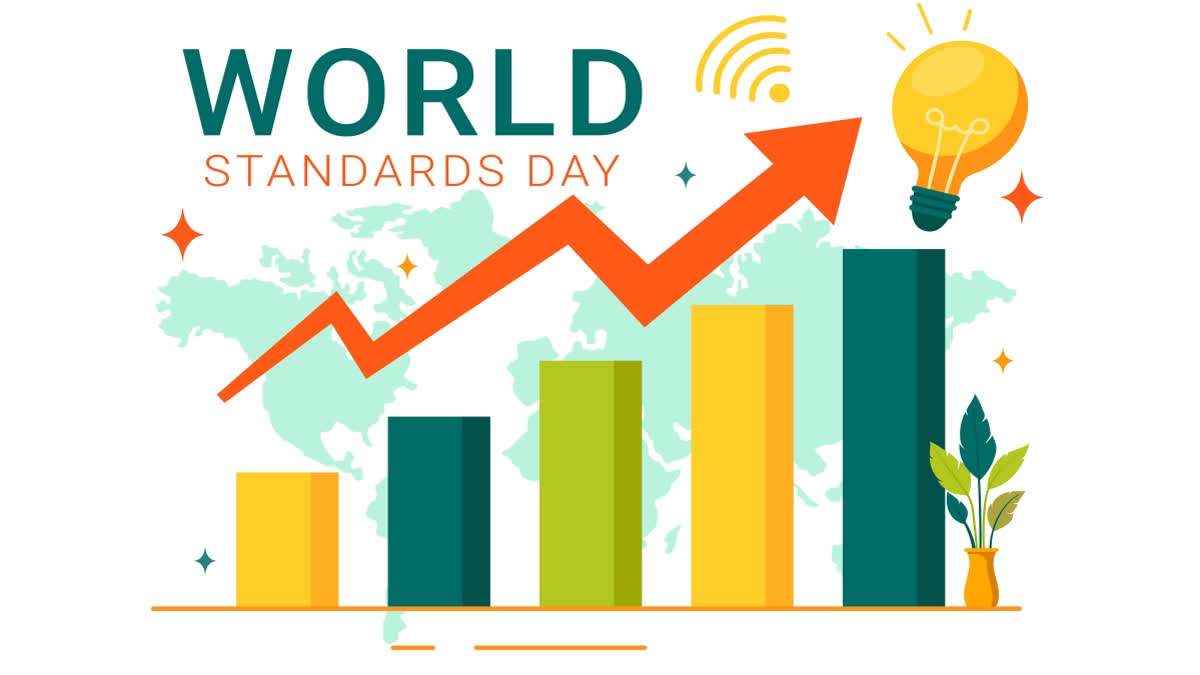Hyderabad: Each year on October 14, the members of the IEC, ISO and ITU celebrate World Standards Day, which is a means of paying tribute to the collaborative efforts of thousands of experts worldwide who develop the voluntary technical agreements that are published as international standards.
World Standards Day (WSD) offers an opportunity to raise awareness and increase understanding of the importance of standardization. It is a collaborative initiative of the International Electrotechnical Commission (IEC), the International Organization for Standardization (ISO) and the International Telecommunication Union (ITU), who each year develop campaign elements to empower the global community.
History Of World Standards Day
On October 14, 1946, the first World Standards Day was observed. International organizations that set standards, such as ITU (International Telecommunication Union), IEC (International Electrotechnical Commission), and ISO (International Organization for Standardization), created this day. The International Organization for Standardization's (IES) then-president, Faruk Sunter, hosted the event to promote standardization in industrial settings, but regular commemorations didn't begin until almost 25 years later.
WHO organizes: The world's leading developers of international standards: the IEC, ISO and the ITU. The three organizations collaborate on a number of initiatives, under the banner of the World Standards Cooperation.
Why it matters: Standards touch almost every part of our daily lives. They ensure that products and services work the way that we expect them to, making life safer and more enjoyable. Standards are essential to achieving the 2030 Agenda and creating a fairer, more sustainable world.
WHO benefits: Together with our members, we are celebrating standards as a global community. Whether it's those who already contribute to the development of standards, those who work with standards, or those who want to find out more, World Standards Day is a global celebration of the power of standardization.
Significance Of World Standards Day
In the past, different regions used significantly different units of measurement. However, maintaining consistency in measurements is crucial in the connected world of today, particularly given the widespread use of technology like cellphones and batteries. Standardization is essential for encouraging innovation and streamlining use. It minimizes waste, increases productivity, and clears the path for the creation of fresh, improved systems and goods.
World Standards Day Theme
Every year, the World Standards Event has a theme around which events and knowledge materials are created. The theme for World Standards Day 2024 is Shared Vision for a Better World: Standards for the Changing Climate.
International Standards
International standards bring technological, economic and societal benefits. They help to harmonize specifications of products and services, making the industry more efficient and breaking down barriers to international trade. Conformity to international standards can help reassure consumers that products and services are safe, efficient and environmentally responsible.
Everybody deserves access to clean water, adequate sanitation, decent housing and electricity – standards solve the technical challenges that are essential to human dignity, helping us achieve our shared vision for a better world.
Why is standardization important in the economy?
The standards ensure that goods or services produced in a specific industry come with consistent quality and are equivalent to other comparable products or services in the same industry. Standardization also helps to ensure the safety, interoperability, and compatibility of goods produced.
Standards and the SDGs
Global collaboration is necessary to achieve the United Nations Sustainable Development Goals (SDGs). The entire standards system is built on collaboration; it’s a testament to the power of multilateralism and the belief that we are stronger than the sum of our parts.
Achieving the SDGs will require the cooperation of many public and private partners, and the use of all available tools to disseminate best practices, including international standards and conformity assessment. By working together, we are empowering people with real-world solutions to face sustainability challenges head-on.
Each SDG is a call for action. While the SDGs cover many areas, in almost all cases, there’s a role for standards as they help in optimizing and adapting old processes and setting rules that make new ones work. Standards underpin the technology that connects us, shrinking distances and allowing access to knowledge, education and markets.
Standards also act as accelerators in providing and implementing solutions. In creating infrastructure that helps people to live together and makes the best use of resources can’t be left to improvisation, it takes a tried-and-tested approach agreed by experts – standards.



